Teaching Yourself How To Cook
Have you ever wished you could learn how to cook really well? I mean, beyond surviving the dinner rush every night at home?
Believe it or not, it is possible to learn how to cook impressive dishes without the cost of culinary school.
I once worked in a kitchen where I learned so much and since then I have wanted to share what I know.
I didn't feel quite up to the task so I asked a couple friends to help me.
I've known both of these women most of my life and we have all embraced cooking as a way of expressing ourselves.
Clarissa and I worked together as cooks for a few years. When we cooked together we always found a natural rhythm and I loved it. I can tell you firsthand that she is an incredible cook and great at applying what she's learned.
Tyler has taught herself nearly everything she knows about cooking and she doesn't shy away from a challenge. She likes to read cookbooks and try new recipes, and she's even found ways to enjoy cooking as a young mom.
The three of us have answered some questions you might have when it comes to learning how to cook on your own. Enjoy!
When you've finished with this post, check out Kitchen Tips To Help You Actually Like Cooking where I've shared some resources for improving cooking skills.
This post may contain affiliate links, which means I may receive a commission if you make a purchase using these links at no extra cost to you. All opinions expressed in this article are my own.
What got you interested in cooking?
Tyler:
"As I was growing up, most of my best memories involved family and where there was extended family, there was also great food... Great food equaled love, warmth, and happiness from a young age and I always wanted to recreate that."
Kaitlyn:
"I've always liked exploring different cultures and food is a cheaper way for me to do that. I have young kids and I don't get to travel as much as I would like so cooking is a way for me to learn about the world."
What kitchen tools do you recommend?
Tyler:
"Some of this will depend on what you want to learn to cook and what you’ll make most often.
But in my opinion, the absolute essentials are:
• a great chef’s knife
• a paring knife
• a serrated paring knife
• a micro plane
• a wood cutting board (it’s easier on your knives and actually has natural anti microbial properties)
• a set of mixing bowls (I like stainless steel; They’re durable, clean easily, and are microwave safe)
• Some basic kitchen utensils (a whisk, wooden spoon, etc)
• measuring cups (liquid and dry)
• some basic pots and pans like a small and large frying pan
• a couple of different size pots
• baking sheets
• and I love a deep skillet or braiser that’s oven safe..."
Clarissa:
"A really good knife can change your cooking experience drastically. It makes cooking easier and can decrease frustration.
You can go the more expensive route and get a Wusthof which are great knives and are pretty popular.
I would recommend getting a set that is more cost effective and buying nicer ones as you learn and can afford it.
I’ve had Pure Komachi from Amazon for quite a long time and they’ve worked great and weren’t too expensive.
If you REALLY want at least one knife that’s top notch, I would get a chef’s knife; you’ll use that one the most often and it’s very versatile. I also recommend investing in a knife sharpener."
Kaitlyn:
"All of the above, plus a food scale"
What kitchen tools do you find unnecessary or less useful?
Tyler:
I try to avoid single use tools like shredder claws, strawberry huller, herb scissors, and avocado slicers."
Tyler:
"As I was growing up, most of my best memories involved family and where there was extended family, there was also great food... Great food equaled love, warmth, and happiness from a young age and I always wanted to recreate that."
Kaitlyn:
"I've always liked exploring different cultures and food is a cheaper way for me to do that. I have young kids and I don't get to travel as much as I would like so cooking is a way for me to learn about the world."
What kitchen tools do you recommend?
Tyler:
"Some of this will depend on what you want to learn to cook and what you’ll make most often.
But in my opinion, the absolute essentials are:
• a great chef’s knife
• a paring knife
• a serrated paring knife
• a micro plane
• a wood cutting board (it’s easier on your knives and actually has natural anti microbial properties)
• a set of mixing bowls (I like stainless steel; They’re durable, clean easily, and are microwave safe)
• Some basic kitchen utensils (a whisk, wooden spoon, etc)
• measuring cups (liquid and dry)
• some basic pots and pans like a small and large frying pan
• a couple of different size pots
• baking sheets
• and I love a deep skillet or braiser that’s oven safe..."
Clarissa:
"A really good knife can change your cooking experience drastically. It makes cooking easier and can decrease frustration.
You can go the more expensive route and get a Wusthof which are great knives and are pretty popular.
I would recommend getting a set that is more cost effective and buying nicer ones as you learn and can afford it.
I’ve had Pure Komachi from Amazon for quite a long time and they’ve worked great and weren’t too expensive.
If you REALLY want at least one knife that’s top notch, I would get a chef’s knife; you’ll use that one the most often and it’s very versatile. I also recommend investing in a knife sharpener."
Kaitlyn:
"All of the above, plus a food scale"
What kitchen tools do you find unnecessary or less useful?
Tyler:
I try to avoid single use tools like shredder claws, strawberry huller, herb scissors, and avocado slicers."
 |
What resources have been most helpful to you?
Tyler:
"...From watching Food Network, I learned the best way to hold a knife, chop an onion, how to taste for seasoning, and all the other basics like how you can check if meat is done by touching it and feeling how firm it is and to let meat rest before cutting into it.
I definitely recommend a good meat thermometer still when you’re first trying these things so you know what chicken feels like at 160° when it’s cooked and what 130° feels like for a medium rare steak.
I also love a good food blog as an easy way to check reviews to make sure a recipe works, but I think cookbooks are even more helpful.
Salt, Fat, Acid, Heat by Samin Nosrat and The Food Lab by J. Kenji Lopez-Alt are particularly helpful for teaching the science behind cooking and teaching you how to cook as opposed to just following a recipe."
Kaitlyn:
"I mostly find recipes online, especially through Pinterest. Instead of just saving recipes by category, I'll save pins in the general order I would like to try them.
And saving to boards based on the time of year makes it easy to find recipes with in-season produce.
I've created one section at the top where I move pins/recipes that I have already read and want to try in the next few weeks.
So, when I sit down to meal plan for the week I just look through my "try next" section and choose a few recipes.
Also, one of my favorite cooking blogs is Half Baked Harvest."
How can you tell if a recipe will be good?
Kaitlyn:
"Trial and error. Finding good recipes is a skill that comes with time. Don't be afraid to make something that might not turn out.
If there is something specific you want to make, research multiple recipes, find what they have in common then make an educated guess on which one to choose. The more you do this, the more you will learn what to look for."
Tyler:
"This is where food blogs can be your best friend. Reading reviews and comments on recipes is so helpful for seeing if the recipe works or not and seeing if any changes to ingredients or method helped others get a better turnout.
Once you know more and have been cooking more, you’ll better be able
to tell if a recipe will be to your tastes or not."
What skills you do suggest a beginner learn first?
Tyler:
"...Learning how to hold a knife properly and learning to chop correctly will help you be safer and more efficient in the kitchen. Practice chopping vegetables that you cook with or eat a lot.
Learn how to use salt correctly. Salt needs to be added as you cook, not just sprinkled on top at the end.
Once you have some knife skills and know how to season food well, I think it’s helpful to practice and perfect something you cook a lot.
Learn how to properly season meat, how to pat it dry so it gets a beautiful brown crust on the outside, and how to cook it to the perfect temperature.
And from there it’s easy to build on what you know.
Clarissa:
"...The best advice I was told when I was first learning was to add spices, acid, and sugar to a meal one at a time and taste it, so you can taste and understand how that element changes the meal. Learning this skill will make it easier to figure out what you need to add to really elevate the flavors in your meal."
 |
| Kaitlyn: "I was proud of this butternut ravioli that I made from scratch." |
Clarissa:
"I’m proud of the lamb shank and parmesan risotto I made for my wife on Valentine's Day shortly before we got married.
And I make prime rib for Christmas every year. It has to be seasoned ahead of time and it takes nearly all day to cook, so I feel accomplished when it turns out well.
One of the hardest foods I have cooked was Beef Wellington. Learning how to make it look pretty and also getting it to not be soggy on the bottom can be tricky.
And I loved this salad I made for Thanksgiving. It had goat cheese, beets, acorn squash, grapefruit, sourdough bread croutons and pomegranates. It was so good."
Tyler:
"Thanksgiving dinner.... I knew I had the knowledge and tools to pull off a good turkey but I had never actually done it and it felt like very high stakes for my first attempt.
It ended up being really delicious and I had many comments about how flavourful and juicy it was which was a relief but I had been so nervous!
The other is caramel. I’ve made caramel successfully but I have also burned many attempts and it’s something so basic but I still find it fiddly and never know when it will turn out or not."
What was your biggest mess up in the kitchen?
Clarissa:
"I once tried making these cucumber, avocado sushi roll type things. It turned out absolutely awful. They were so messy, avocado going everywhere, squishing out the sides. It didn’t taste very good. It was very bland and it was pretty embarrassing."
Kaitlyn:
"I'm really good at unintentionally burning things and setting things on fire. I got in trouble at work a few times because I started cooking something and then walked away and forgot about it.
And at home I have put eggs on to boil or rice to cook and totally forgot about them until the smoke alarm went off. This was before I had kids, so it's not like I had anything else going on at home.
I also burned a whole dinner on the grill. It wasn't just burned, it was all on fire.
Just know that even experienced cooks wreck hard sometimes. At least now I know I have ADHD."
 |
| Kaitlyn: "I've known and loved Clarissa since we were practically babies." |
What is your favorite food to make?
Tyler:
"...I love making a really perfect piece of salmon with delicious roasted vegetables. And I also find myself picturing really good Neopolitan style pizza..."
Clarissa:
Tyler:
"...I love making a really perfect piece of salmon with delicious roasted vegetables. And I also find myself picturing really good Neopolitan style pizza..."
Clarissa:
"Pasta dishes. I feel like they are pretty simple but can be versatile in flavor by changing the type of sauce you make. I may be a little biased though, as noodles are my favorite food..."
How often would you recommend a beginner try something new?
Kaitlyn:
"I think this depends on personal preference and the difficulty of the skill.
I would suggest making a cooking bucket list of skills and foods you want to learn so you will have an idea of where you want to start.
And you don't have to make a fancy dinner to learn something new. You could reasonably try something small every once in a while like how to poach an egg, make fresh salsa, or make naan.
Just be sure to pace yourself. If you're not having fun, maybe ease off and take some time to practice the skills you have already acquired.
If you want to try an entirely new recipe, maybe plan on doing that just once a month until you feel more comfortable with cooking."
How do you keep costs low when learning how to cook?
Tyler:
"...Try using cheaper alternatives when you’re first trying something fancier. Like when you’re making pizza for the first time, use the all purpose flour and cheap shredded mozzarella and keep toppings minimal and simple. If you love making pizza and you feel like you’ve mastered it, try making it using a good 00 flour with a more expensive cheese and the toppings you want. Using good ingredients will help you get good outcomes, but as you’re learning or if your budget doesn’t allow for pricier ingredients, you can still make amazing food."
Kaitlyn:
"A cooking bucket list can come in handy with this too.
Have an idea of what you want to make, pick something from your list, research recipes online, make a list of ingredients you will need, make an estimate of how much it will cost, then set aside money for it a little at a time.
You could budget for one fancy meal a month or every other month.
At holidays and your birthday you could ask for gifts such as a new knife and more expensive ingredients like saffron, truffle oil, or even a giftcard to a specialty grocery store.
How often would you recommend a beginner try something new?
Kaitlyn:
"I think this depends on personal preference and the difficulty of the skill.
I would suggest making a cooking bucket list of skills and foods you want to learn so you will have an idea of where you want to start.
And you don't have to make a fancy dinner to learn something new. You could reasonably try something small every once in a while like how to poach an egg, make fresh salsa, or make naan.
Just be sure to pace yourself. If you're not having fun, maybe ease off and take some time to practice the skills you have already acquired.
If you want to try an entirely new recipe, maybe plan on doing that just once a month until you feel more comfortable with cooking."
How do you keep costs low when learning how to cook?
Tyler:
"...Try using cheaper alternatives when you’re first trying something fancier. Like when you’re making pizza for the first time, use the all purpose flour and cheap shredded mozzarella and keep toppings minimal and simple. If you love making pizza and you feel like you’ve mastered it, try making it using a good 00 flour with a more expensive cheese and the toppings you want. Using good ingredients will help you get good outcomes, but as you’re learning or if your budget doesn’t allow for pricier ingredients, you can still make amazing food."
Kaitlyn:
"A cooking bucket list can come in handy with this too.
Have an idea of what you want to make, pick something from your list, research recipes online, make a list of ingredients you will need, make an estimate of how much it will cost, then set aside money for it a little at a time.
You could budget for one fancy meal a month or every other month.
At holidays and your birthday you could ask for gifts such as a new knife and more expensive ingredients like saffron, truffle oil, or even a giftcard to a specialty grocery store.
How do you make cooking more enjoyable for yourself and less of a chore?
Clarissa:
"What really makes it more enjoyable for me is sharing it with people. When I see how much people like my food, it makes me want to do it again."
Tyler:
"... It’s been helpful for me to work with my partner to have times where he manages kids while I cook dinner and sometimes just having that time to focus on cooking with no
interruptions is enough to bring back the joy in cooking.
I will listen to an audiobook and
try to focus on cooking as a break from kids and other demands rather than as a task
that has to be completed.
Trying a new Thai or Indian dish is often motivation enough for me to get excited at the prospect of trying to recreate it at home..."
Kaitlyn:
"I resent cooking if I am already hangry, so I will sometimes have a light snack just before I start. I'll also keep my water handy or make myself a quick mocktail to sip while I work.
Also, I hate having my feet hurt while I'm standing in the kitchen forever long. So, I always wear my cushy sandals that I only use around the house.
Listening to music makes a huge difference for me too. Cooking is more fun when I can dance around the kitchen."
I feel like especially trying new recipes makes cooking dinner take SO LONG. Best tips for speeding things up when you're trying something new?
Tyler:
"I’m a big fan of prepping ahead. It still ends up being the same amount of work and time, but doing some work ahead of time makes such a difference when it’s a scramble to get dinner on the table. If you look at your menu plan and recipes, you can prep a lot of veg right when you bring them home from the shop...
Start putting all of your rubbish in a bowl as you’re ... prepping and wait until you’re done before emptying the bowl into the bin. It’s amazing how even quick trips over to the bin can end up adding so much time so use the bowl and save time."
Kaitlyn:
"Read the recipe 2-3 times before you start, that way you only have to glance at it every now and again while you cook.
Keep your counters clear so you don't have to clean up before you start making dinner.
If you have the space, pull all the ingredients out of the pantry and fridge and put them within reach of your work space.
'Batch it.' I've done this for years but I've never had a term for it until I read The Lazy Genius Way by Kendra Adachi. The concept of batching it means to do the same type of task all at once.
This means opening all the canned food at once, measuring all the spices, peeling all carrots and potatoes and then chopping them all at once. Adachi says, "...batching gives your brain a break since you're essentially turning it on autopilot," and it all gets done faster.
And research to find faster ways of cutting fruits and vegetables. You don't have to do things the way you always have or the way your parent taught you.
My sister once asked me to cut the woody ends off the asparagus so I placed the whole bunch onto the cutting board with the elastic still on and chopped through it with one fell swoop. Her jaw dropped and she said, 'Why did I never think of that? I've always broken the ends off one at a time by hand.'
Clarissa:
"What really makes it more enjoyable for me is sharing it with people. When I see how much people like my food, it makes me want to do it again."
Tyler:
"... It’s been helpful for me to work with my partner to have times where he manages kids while I cook dinner and sometimes just having that time to focus on cooking with no
interruptions is enough to bring back the joy in cooking.
I will listen to an audiobook and
try to focus on cooking as a break from kids and other demands rather than as a task
that has to be completed.
Trying a new Thai or Indian dish is often motivation enough for me to get excited at the prospect of trying to recreate it at home..."
Kaitlyn:
"I resent cooking if I am already hangry, so I will sometimes have a light snack just before I start. I'll also keep my water handy or make myself a quick mocktail to sip while I work.
Also, I hate having my feet hurt while I'm standing in the kitchen forever long. So, I always wear my cushy sandals that I only use around the house.
Listening to music makes a huge difference for me too. Cooking is more fun when I can dance around the kitchen."
I feel like especially trying new recipes makes cooking dinner take SO LONG. Best tips for speeding things up when you're trying something new?
Tyler:
"I’m a big fan of prepping ahead. It still ends up being the same amount of work and time, but doing some work ahead of time makes such a difference when it’s a scramble to get dinner on the table. If you look at your menu plan and recipes, you can prep a lot of veg right when you bring them home from the shop...
Start putting all of your rubbish in a bowl as you’re ... prepping and wait until you’re done before emptying the bowl into the bin. It’s amazing how even quick trips over to the bin can end up adding so much time so use the bowl and save time."
Kaitlyn:
"Read the recipe 2-3 times before you start, that way you only have to glance at it every now and again while you cook.
Keep your counters clear so you don't have to clean up before you start making dinner.
If you have the space, pull all the ingredients out of the pantry and fridge and put them within reach of your work space.
'Batch it.' I've done this for years but I've never had a term for it until I read The Lazy Genius Way by Kendra Adachi. The concept of batching it means to do the same type of task all at once.
This means opening all the canned food at once, measuring all the spices, peeling all carrots and potatoes and then chopping them all at once. Adachi says, "...batching gives your brain a break since you're essentially turning it on autopilot," and it all gets done faster.
And research to find faster ways of cutting fruits and vegetables. You don't have to do things the way you always have or the way your parent taught you.
My sister once asked me to cut the woody ends off the asparagus so I placed the whole bunch onto the cutting board with the elastic still on and chopped through it with one fell swoop. Her jaw dropped and she said, 'Why did I never think of that? I've always broken the ends off one at a time by hand.'
Finding those practical shortcuts will save you a lot of time."
What questions do you have for us about cooking? Ask us in the comments below or just tell us what you liked about this post!






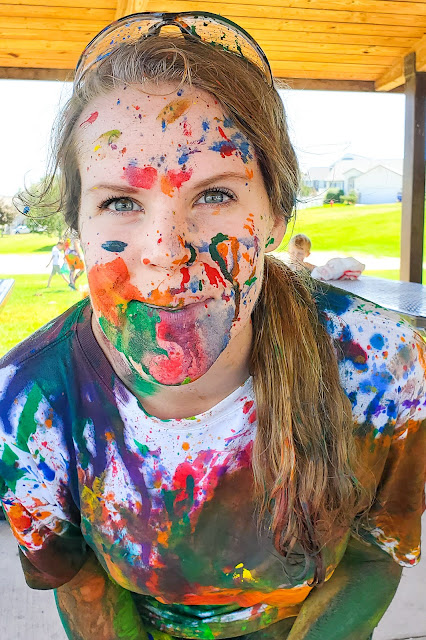


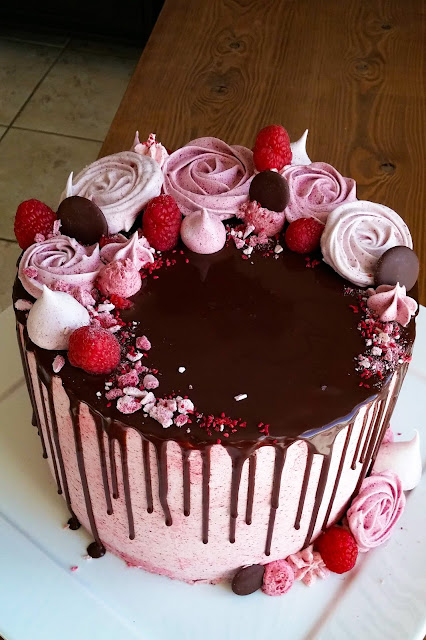

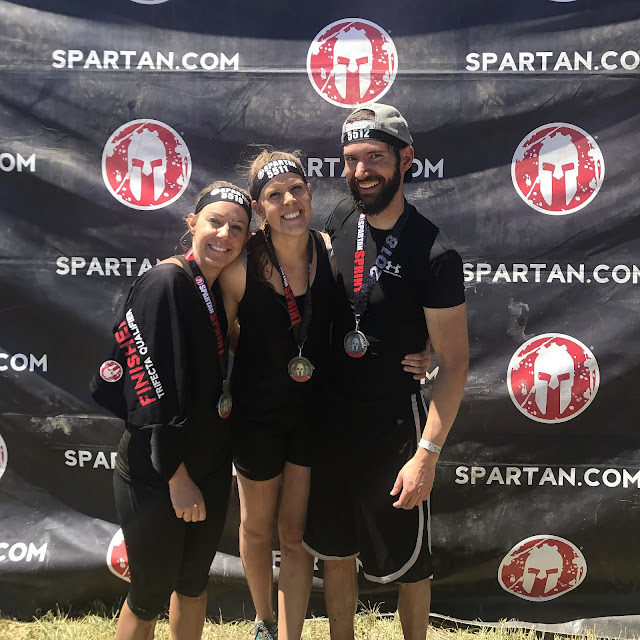
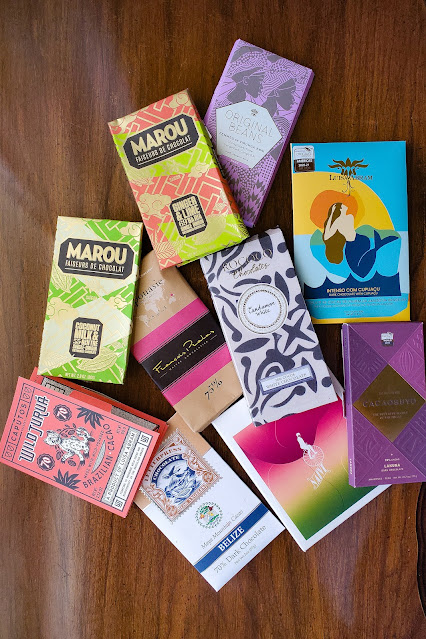
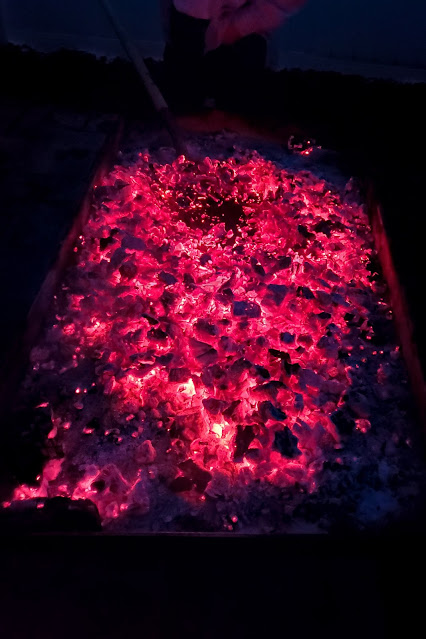

Comments
Post a Comment